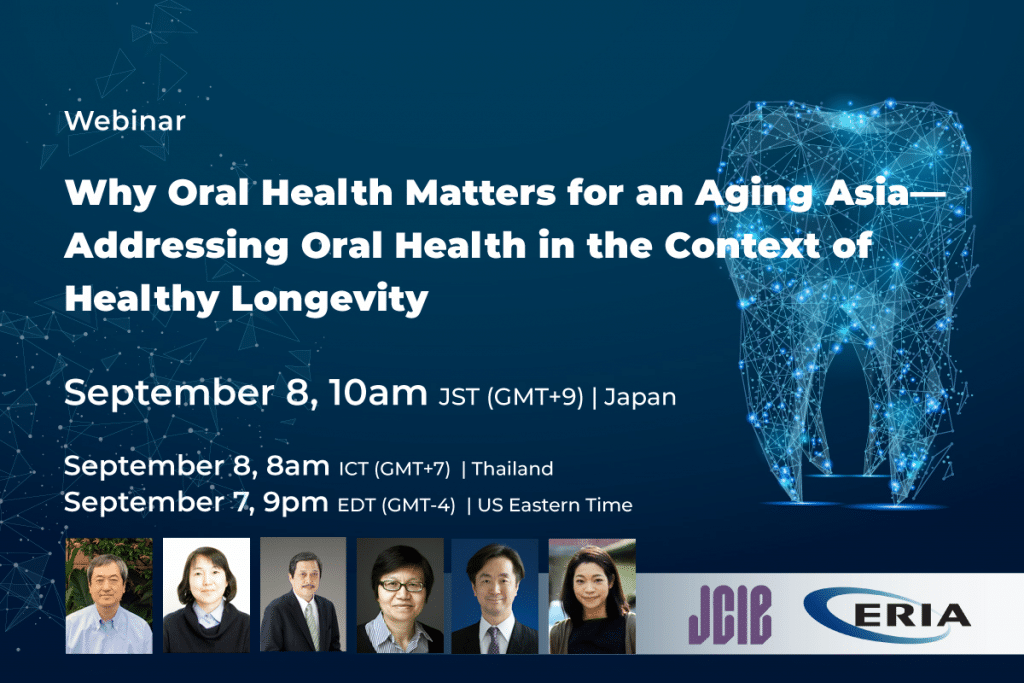It is becoming increasingly clear that oral health plays a critical role in overall health, particularly as we age. Earlier this year, the WHO recognized the importance of oral health in a resolution that pushed to include oral health within its agenda on noncommunicable diseases and to include oral healthcare interventions in universal health coverage programs.
Building on this momentum, the Japan Center for International Exchange (JCIE) and the Economic Research Institute for ASEAN and East Asia (ERIA) co-hosted a webinar to further explore the connection between oral health and healthy longevity. You can watch the recording below or on YouTube. We brought together a panel of experts from Japan, Thailand, and the United States, to share some of the latest findings on the connections between oral health and healthy longevity, on the status of oral health among older people in Asia, on Japan’s own robust “8020 Campaign” to promote oral health for older people (see our recent policy brief), and on how countries in the region are working to improve access to oral health.
This webinar is the third in a series of AHWIN webinars, which we launched in 2020 in response to the COVID-19 pandemic and which aim to serve as a platform to connect expert, not only from Asia but from around the globe. Our first webinar brought together experts from Japan, the United States, and Malaysia to share lessons on “Responding to the Needs of Older People during the COVID-19 Pandemic,” while the second looked at “Building Dementia-Friendly Communities in Asia Pacific,” and included Japanese, American, and Indonesian experts.
Key Takeaways
- Studies have shown that oral health (number of teeth, chewing ability) not only has a relationship with overall life expectancy, but also healthy life expectancy at age 65.
- There is growing evidence of an interactive relationship between periodontal disease and diabetes, and of a causal relationship between periodontal disease and increased risk of various diseases such as cardiac events, stroke, and dementia.
- Japan’s 8020 Campaign has been successful in promoting oral health among the Japanese population by involving various stakeholders such as government officials and the private sector, in addition to those in the dental field. The importance of setting goals based on current data was also highlighted.
- Operational research in public health and epidemiological research on oral health–general health links, particularly obtaining country-specific data, is crucial to support and implement policies and strategies.
- Regular monitoring systems with measurable indicators are essential to integrate oral health into universal healthcare. In the case of Thailand, the following set of national-level indicators were used: population coverage, service provision, access to care, financing oral health services.
- Oral health care should be emphasized as part of primary health. Not only disease prevention but also functional maintenance should be strengthened. Along with measures against physical frailty, it is important to take measures against oral frailty to maintain oral functions while regularly implementing oral health care.
- Oral health concerns all age groups: from pregnant mothers to infants, school children, adults, and older people. As seen from the cases of Japan and Thailand, universal health insurance plays an important role in implementing a life course approach providing seamless health service networks.
Event Details
When: Wednesday September 8 (Asia) | Tuesday, September 7 (US)
Time: 8:00–9:00am ICT (GMT+7) | 10:00–11:0am JST (GMT+9) | 9:00–10:00pm EDT (GMT-4)
Platform: YouTube
Language: English
Organizers: Japan Center for International Exchange (JCIE), Economic Research Institute for ASEAN and East Asia (ERIA). This program is being carried out under the auspices of the Asia Health and Wellbeing Initiative (AHWIN).
SPEAKER BIOS
Moderator
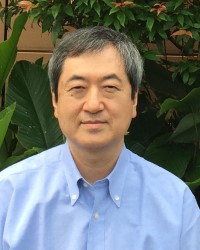
YASUHIKO SAITO
Research Project Professor, College of Economics, Nihon University, Japan; Senior Advisor to the President on Population Ageing, Economic Research Institute for ASEAN and East Asia
Dr. Yasuhiko Saito is a research project professor at the College of Economics, Nihon University, and he serves as a senior advisor on population aging at the Economic Research Institute for ASEAN and East Asia (ERIA). He earned a BA in economics from Nihon University and his PhD in sociology from the University of Southern California (USA). He has served as a council member of the International Union for the Scientific Study of Population (IUSSP) from 2005 to 2009. His specializations are in demography and gerontology, and he has been working on population aging and health issues in both developed and developing countries. In order to understand aging societies and older adults’ health in particular, his research is interdisciplinary, and he has often collaborated with scholars from various social science and natural science fields as well as medical science fields. One of his areas of expertise is research on health expectancy. He has been involved as a founding member in the activities of a research network on health expectancy called REVES. He has conducted a six-wave national longitudinal survey on aging and health in Japan and has been on the research team for longitudinal studies on aging and health in the Philippines, Singapore, Vietnam and Kerala, India.
PRE-RECORDED PRESENTATION on 8020 CAMPAIGN
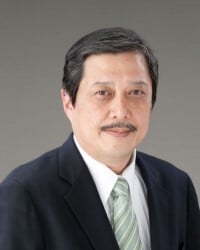
TAMOTSU SATO
Vice President, Japan Dental Association; Vice President, 8020 Promotion Foundation
Dr. Sato is a leader in the field of dentistry in Japan, serving as vice president of the Japan Dental Association and the 8020 Campaign. He completed dental school at Iwate Medical University and obtained his PhD in hygiene and public health in 1980. In addition to his work at JDA and 8020 Promotion Foundation, Dr. Sato serves as visiting professor at Iwate Medical University and runs his own dental clinic in Morioka City, Iwate in Japan.
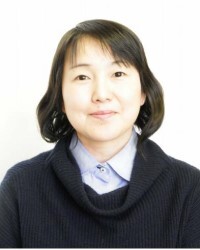
YASUHIKO SAITO
Chief Researcher, Japan Dental Association Research Institute; Director, 8020 Promotion Foundation
Dr. Tsuneishi completed dental school at Okayama University and began working at the Okayama University Graduate School of Medicine, Dentistry, and Pharmaceutical Sciences as a research assistant in 1998. She obtained her PhD in dentistry in 2006 from Okayama University. With a specialty in preventive and social dentistry, Dr. Tsuneishi has been working at the Japan Dental Association (JDA) Research Center since 2007, and as chief researcher, she is currently involved in research and data collection to inform JDA’s policy development.
SPEAKERS
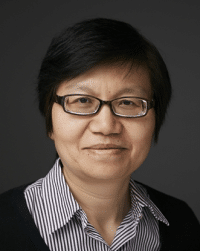
BEI
WU
Dean’s Professor in Global Health and Director for Global Health and Aging Research, New York University, Rory Meyers College of Nursing
Dr. Bei Wu is dean’s professor in global health and director for global health and aging research at the NYU Rory Meyers College of Nursing. She is also co-founder of the NYU Aging Incubator, a university-wide aging initiative. She is an affiliated faculty at the NYU College of Dentistry. She has led a significant number of NIH-funded studies on addressing oral health disparities in older adults. She received the J. Morita Junior Investigator Award in Geriatric Oral Health from the International Association for Dental Research (IADR) in 2007 and the 2017 (IADR) Distinguished Scientist Award for Geriatric Oral Research. She has published 253 peer-reviewed articles in top-tier journals. Her publications cover a wide range of areas on aging and health, with particular focus on risk factors related to cognitive impairment, dementia caregiving, and geriatric oral health. Dr. Wu is an internationally known leader in gerontology. She is a fellow of the Gerontological Society of America, Association for Gerontology in Higher Education, and the New York Academy of Medicine. She is also an honorary member of the Honor Society of Nursing, Sigma Theta Tau International.
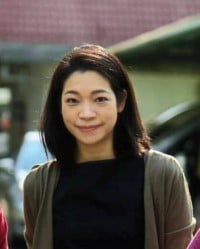
Voramon Agrasuta
Head of Oral Health System Development, Bureau of Dental Health, Department of Health, Ministry of Public Health
Dr. Voramon Agrasuta acquired her Doctor of Dental Surgery qualification at Srinakharinwirot University, Thailand, and her Masters in Healthcare Management from the University of Manchester in the United Kingdom. She currently serves as the head of oral health systems development at the Bureau of Dental Health, in the Ministry of Public Health, Thailand. Dr. Agrasuta has conducted research on health and oral healthcare policies for people with disabilities, as well as on dental health service utilization by working-age and elderly people in Thailand. Her publications include Follow-up and Evaluation of Oral Health Care Programmes for People with Disabilities (Institute of Health Promotion for People with Disability, Nonthaburi, 2016) and Guidelines for Evaluating Oral Health Programmes at the Provincial and District Levels (Bureau of Dental Health, Nonthaburi, 2015) (both in Thai). She is also active in international forums and has served as one of the Thai delegates to the World Health Assembly since 2017.
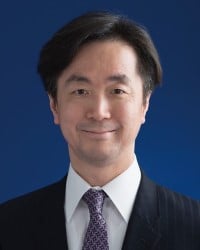
HIROSHI OGAWA
Head and Professor, Division of Preventive Dentistry, Faculty of Dentistry & Graduate School of Medical and Dental Sciences, Niigata University
Dr. Hiroshi Ogawa acquired his dentist qualifications at Nihon University in Japan, his master’s in public health dentistry at the University of Sydney in Australia, and his PhD in preventive dentistry at Niigata University in Japan. He has been head and professor at the Graduate School of Medical and Dental Sciences, Niigata University. Dr. Ogawa has been working with the World Health Organization (WHO) since 2003 in different capacities. Between 2014 and 2017, he served as responsible dental officer to work with the WHO Oral Health Programme in Geneva. Currently, he is a director of the WHO Collaborating Centre for Translation of Oral Health Sciences at Niigata University, and also a member of the WHO Clinical Consortium on Healthy Ageing. Dr. Ogawa is well known for his contributions to oral health promotion from a global perspective and has assisted with oral health capacity development in several countries, such as Thailand, Myanmar, Laos, Cambodia, Philippines, Indonesia, and Palau. Since 2018, he has served as a member of the Public Health Committee of the FDI (World Dental Federation). Dr. Ogawa also conducts clinical research to explore the integration of oral diseases and general diseases (NCDs) that support the implementation of a common risk factor approach.

